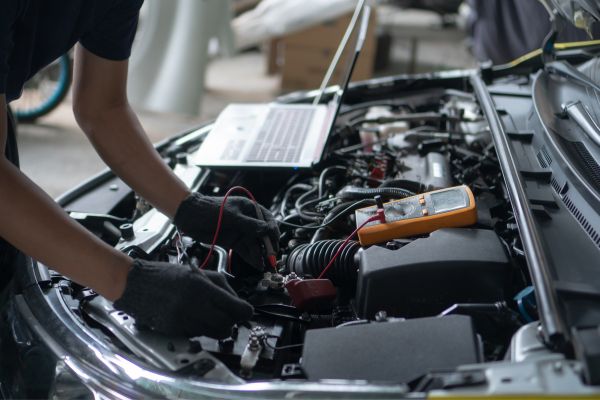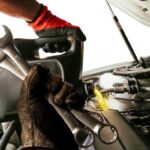Your vehicle is more than just a means of transportation—it’s an essential part of your daily life, enabling everything from work commutes to weekend getaways. But like any machine, a car needs regular care to function reliably. Over time, various components experience wear and tear, often signaling that it’s time for some much-needed attention. Knowing the top signs your car needs maintenance can save you from expensive repairs and ensure your safety on the road.
Understanding when your car is asking for help isn’t always straightforward. Many drivers brush off strange sounds, warning lights, or subtle performance changes, assuming they’re minor or will resolve on their own. However, ignoring these signals can lead to bigger problems down the line. That’s why being proactive in recognizing the early signs your car needs maintenance is crucial.
Strange Noises That Shouldn’t Be Ignored
One of the earliest and most obvious indicators that your car needs maintenance is an unusual noise. When your car begins to make sounds you’re not used to—be it grinding, squealing, knocking, or hissing—your vehicle is trying to tell you something. Squealing brakes often point to worn-out brake pads, while knocking from the engine could indicate a more serious internal issue. A hissing sound may suggest a fluid leak or overheating. These auditory warnings are the car’s way of signaling distress, and responding promptly can prevent larger mechanical failures.
Warning Lights That Demand Attention
Modern vehicles are equipped with a variety of dashboard indicators designed to alert you when something isn’t right. While it might be tempting to ignore that small icon flashing at you, doing so can be a mistake. Whether it’s the check engine light, oil pressure warning, or battery alert, each symbol represents a specific problem that needs addressing. The check engine light, in particular, covers a broad range of issues—from minor sensor errors to serious engine trouble. When any warning light appears, it’s a clear sign your car needs maintenance and should be inspected by a professional as soon as possible.
Reduced Fuel Efficiency and What It Means
If you notice that your car isn’t getting the same mileage it used to, it could be a red flag. A sudden drop in fuel efficiency might mean there’s an issue with the fuel system, engine performance, or even the tires. Underinflated tires, dirty air filters, or a malfunctioning oxygen sensor can all affect fuel consumption. Monitoring how often you fill up the tank is not only smart budgeting—it’s also an indirect way of identifying when your car may need maintenance.
Difficulty Starting the Engine
There’s nothing more frustrating than turning the key (or pressing the button) and having your car hesitate—or worse, not start at all. This kind of problem can stem from a dying battery, faulty starter motor, or fuel system issues. Especially in colder months, battery problems are common, but if your engine regularly struggles to start, it’s time to take it seriously. It’s one of the clearest signs your car needs maintenance and shouldn’t be delayed.
Unusual Vibrations and Poor Handling
If your car starts to vibrate unexpectedly, especially at higher speeds or while braking, you should investigate further. Vibrations might originate from unbalanced tires, worn suspension components, or brake issues. Poor handling, such as a drifting steering wheel or delayed response when turning, also signals underlying problems. These symptoms not only compromise comfort but also pose serious safety risks. Recognizing them early is key to maintaining your car’s health and your peace of mind.
Visible Leaks and Unusual Smells
Spotting fluid under your vehicle is never a good sign. While condensation from the air conditioning system is harmless, puddles of oil, coolant, transmission fluid, or brake fluid are clear indicators that your vehicle needs attention. Additionally, strange smells such as burning rubber, rotten eggs, or a sweet syrupy odor often accompany mechanical issues. These sensory cues are critical signs your car needs maintenance and should be addressed before the situation worsens.
Brake Performance That Feels “Off”
Your braking system is one of the most vital safety features in your car. If you feel a delay in braking, hear grinding noises, or experience the brake pedal sinking too easily under pressure, don’t wait. These issues could stem from worn-out brake pads, low brake fluid, or damaged rotors. Given how essential effective braking is to your safety, any irregularities should prompt immediate action.
Excessive Exhaust Smoke
While all cars emit some exhaust, an increase in smoke or a change in its color can reveal serious problems. Blue smoke suggests oil burning within the engine, black smoke indicates too much fuel is being burned, and white smoke could point to coolant leaking into the engine. Any of these conditions require immediate attention, as they can lead to more significant damage if ignored.
Unresponsive or Sluggish Acceleration
When your car no longer accelerates the way it used to, it’s a strong indication something’s amiss. This may be due to a clogged fuel injector, failing transmission, or an engine issue. A delay in acceleration can compromise your ability to merge onto highways or navigate busy traffic, making it both an inconvenience and a hazard. Recognizing sluggish performance as one of the signs your car needs maintenance is vital for both functionality and safety.
Routine Inspections Can Save You Time and Money
Even when no obvious issues are present, regular maintenance should never be skipped. Scheduled inspections help identify developing problems before they escalate. From checking tire tread and fluid levels to replacing filters and rotating tires, staying on top of routine maintenance ensures your car performs optimally and lasts longer. Prevention is always more cost-effective than repair.
Trusting Your Gut Instinct
Sometimes, you just know something feels different. Maybe the ride isn’t as smooth as it used to be, or your car sounds slightly off. Trusting your instincts and taking your car in for a check-up when something doesn’t feel right can be the difference between a simple tune-up and a costly repair. Your familiarity with your own vehicle makes you the first and best line of defense against potential problems.
Final Thoughts: Stay Ahead by Recognizing the Signs Your Car Needs Maintenance
Caring for your car goes beyond routine oil changes or the occasional car wash. It’s about paying attention to how your vehicle sounds, feels, and performs. By staying alert to the signs your car needs maintenance, you not only protect your investment but also ensure your safety and that of everyone around you. Whether it’s an odd noise, a warning light, or a drop in performance, addressing these issues early can help you avoid breakdowns, save money, and drive with confidence.
Ultimately, your car is talking to you—you just have to listen.







